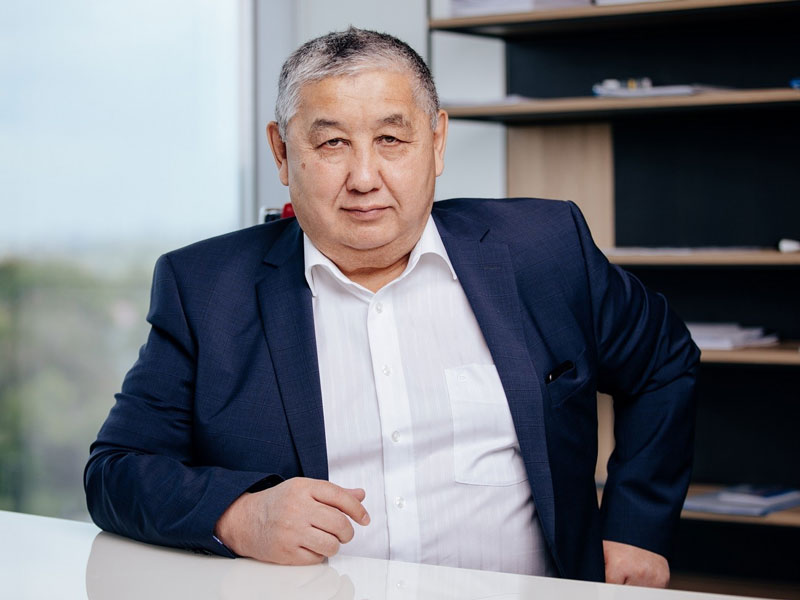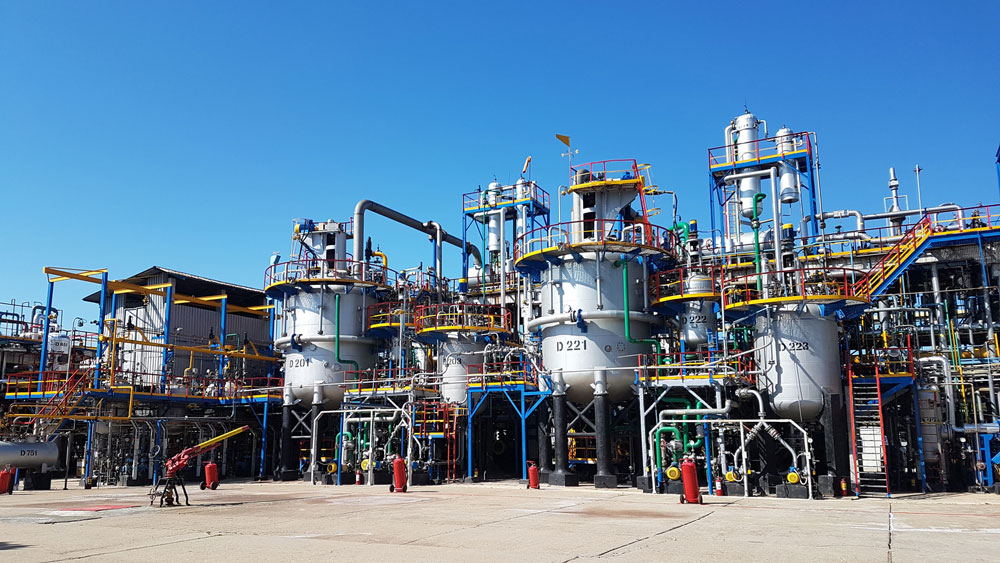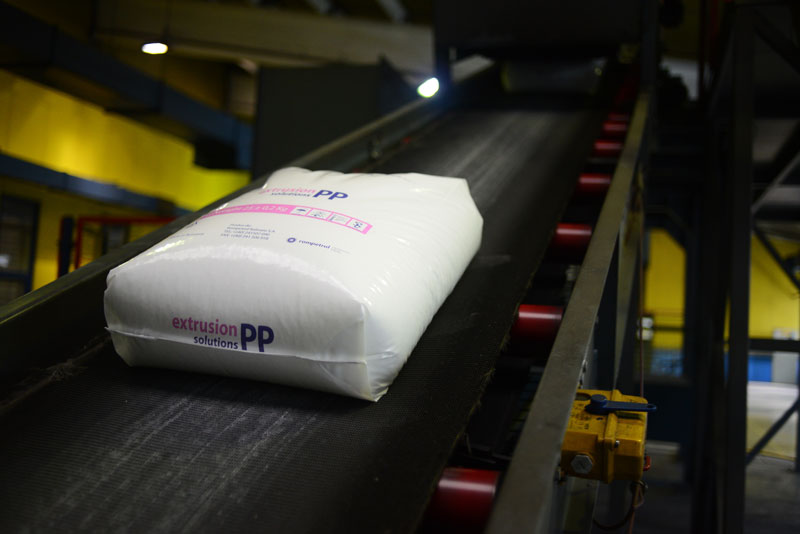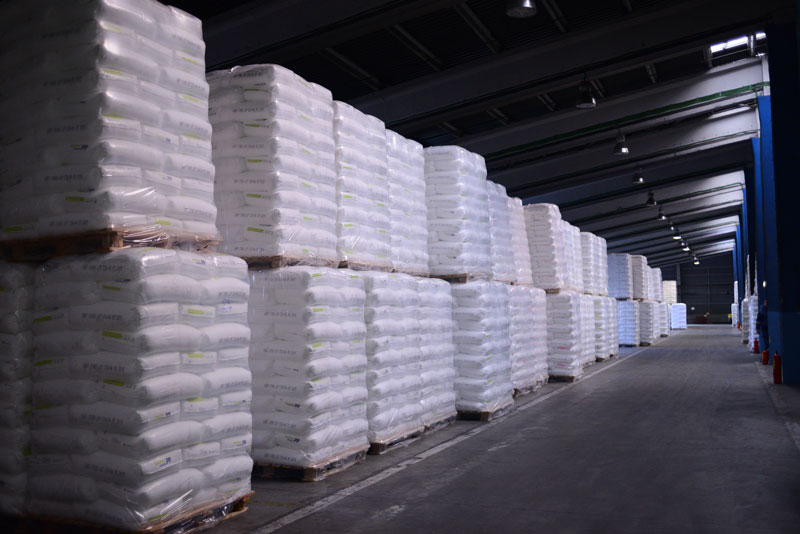A New Type of Polypropylene for Protective Medical Masks
Rompetrol Rafinare through its petrochemical division – the only polymer producer in Romania has successfully developed a new product in the last 3 months, a special type of polypropylene dedicated to protective medical masks. It’s meant for the middle layer of the mask, the most important layer for filtering and protecting against pathogens.

“It is a premiere for Romania and Central and Eastern Europe, a major success of the team of specialists from the Petromidia refinery who managed to achieve a new vital assortment in almost three months to support the fight against COVID-19. Recently, with the support of domestic and international partners, we completed the testing and verification of the new material in accordance with all safety and quality standards and it will enter production in the next period,” says Saduokhas Meraliyev, Operational director of KMG International Group – the majority shareholder of Rompetrol Rafinare.
The new type – RMB30H will be delivered in granules in bags of 25 kilograms and will be used in ‘meltblown’ units – a conventional method of manufacturing micro and nanofibers. Thus, the molten/liquid polymer is extruded together with high speed blowing gas on a support surface, ultimately resulting in a nonwoven fibre material.
According to the standards in the field, the production of a surgical mask consumes approximately 1 gram of inner filter material – RMB30H, with a density of 30 grams/square meter.
The first granules in the new product were obtained on July 10 with the support of its strategic partners to align the technical parameters of the production unit and ensure the chemical components – catalysts, additives. Subsequently, it was tested for the first time at the beginning of this month at one of the company’s partners in Romania and later externally, the results being positive.
More internal and external tests will follow in the next period with local partners such as Taparo Grup Maramures and Global Treat Galati.
Among the benefits provided by RMB30H are a general filtration capacity of over 98%, a melt flow index of the final product up to the value of 1500g/10min depending on processing temperatures, a fibre diameter of 1 – 5 microns, but also the lack of odour, a very important property for protective masks or filtration systems.
It is mainly used for obtaining filter material, for other applications in the area of medical products (protective masks, disposable equipment – sheets, hoods, wet wipes, etc.) or for industrial areas (professional filters with high absorption rate).
“Romania thus becomes an important source of raw materials in Europe and the region for the production of sanitary materials. Together with the local partners we can produce sanitary materials in Romania and contribute to ensuring the necessary internal needs, and also establish a strategic reserve of medical equipment at national and European levels,” adds Saduokhas Meraliyev.
Currently, Rompetrol Rafinare produces and provides all the necessary types of products for obtaining type FPP1 and FPP2 sanitary and surgical masks and medical accessories. The RSB25 (industrial applications), RSB35H and RSB40H (medical and personal hygiene applications) types are dedicated to obtaining nonwoven material for the outer layers of the protective masks, and RMB30H to obtaining nonwoven material for the inner/filtering layer of the masks.
Rompetrol Rafinare is the only producer of polymers in Romania and provides for over half of the domestic consumption of petrochemical products. The types of products developed in recent years allowed the company to establish a competitive position in the regional market (Black Sea, Mediterranean, Central and Eastern Europe). They are used in agriculture, food industry, consumer goods, personal hygiene, electronics, electrical engineering, automotive industry, clothing and construction.
The petrochemical division has an annual capacity of 220,000 tons of polymers through the three production units – polypropylene, low-density and high-density polyethylene units. The raw material for the polypropylene plant is provided entirely by the Petromidia refinery, while the necessary ethylene for the polyethylene unit is ensured by imports.
To these, the only marine ethylene unloading terminal in the Black Sea and two cryogenic tanks with a total storage capacity of 20,000 tons is added (10,000 tons of ethylene and 10,000 tons of propylene).
Through its subsidiaries, KMG International has supported and continues to directly and indirectly support the fight waged by the authorities against COVID-19, both in Romania and in the region – the Republic of Moldova, Bulgaria and Georgia. Research studies were funded, the purchase of mobile intensive care units, significant amounts of fuel were donated to ambulance services.









